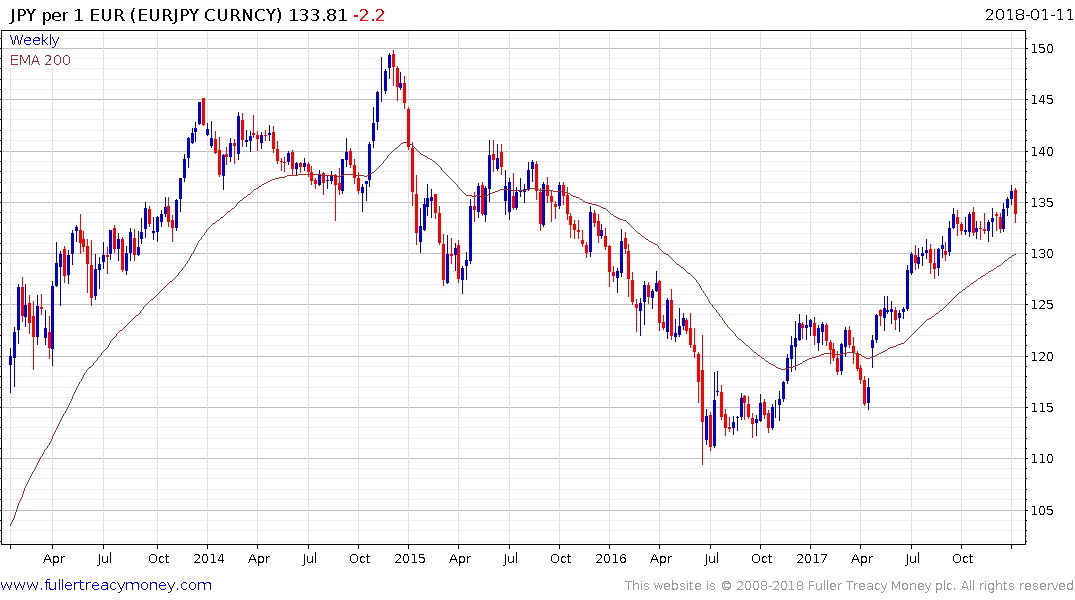Email of the day on Japan's monetary policy
Happy new year! The BoJ has surprised us! At yesterday's tender, it offered to buy Y190bn of bonds in the 10 - 25 year maturity range, a reduction of Y10bn. It similarly reduced bonds purchased in the 25+year maturity category. Well, this was unexpected and the 10-year yield has risen to around 8bps (!!). The BOJ's target, as we know, is zero. The yen has rallied sharply over the last couple of days. It's worth recalling that at this time last year, the BOJ was purchasing Y190bn of JGBs with 10 to 25 years of maturity left and Y110bn of 25 to 40-year JGBs. Thus, while the BOJ remains extremely accommodative, any change at the margin, however small, will cause a ripple or two. BOJ's action coincided with the stock market looking quite overbought in the short term and USD/Yen finding resistance around 114. All said and done, I can't believe that the BOJ will let bond yields rise too far away from their target.
Thank you for this informative email. Japan is one of the only countries in the world right now running both accommodative monetary and fiscal stimulus. However, let’s not also forget that creating inflation is the primary goal of these operations, hopefully from outsized domestic growth, but any inflation will do to help erode Japan’s massive quantity of debt.
Year over year CPI is currently running about 0-6% and remains in a long-term range. Wages remain stagnant but continued labour shortages suggest there is room for wage growth to evolve at some stage and labor force participation, particularly among women is trending steadily higher.
A subscriber kindly forwarded this article from Business Insider quoting Albert Edwards. Here is an important section:
One of the most often cited issues with Japan's economy is the sclerotic inflation picture. That could be about to turn, Edwards believes.
"Inflation expectations have been picking up everywhere, even in Japan," he said.
"The percentage of households who see positive inflation, as opposed to deflation, is now over 60%. What is interesting is that this has been trending up, despite headline inflation remaining close to zero."
"Normally you'd need a spike in headline inflation for those to drift up. If this drifts up, the real expected interest rate declines, and that is a monetary loosening in itself. If people think deflation is disappearing, they will stop postponing purchases, so this is very significant."

If inflation really is returning in Japan then banks are major potential beneficiaries. The Topix Banks Index continues to extend its breakout and a sustained move back below 200 would be required to question medium-term scope for additional upside.
Meanwhile, I agree that the BoJ is unlikely to act aggressively in tapering its quantitative easing program.
Japan’s major companies tend to compete more with European and South Korean manufacturers than anywhere else so how ECB policy evolves is likely to inform how the BoJ acts over the medium-term. The ECB added 50 billion less to its balance sheet in 2017 than it did in 2016, so it is reasonable to conclude it is already tapering. The pace of tapering is likely to pick up this year since they expect to complete the program by the third quarter.

The Euro has trended higher against the Yen since mid-2016 and this week’s downward dynamic suggests mean reversion is underway. I suspect the BoJ will be sensitive to the loss of competitiveness a stronger Yen against the Euro would represent.


